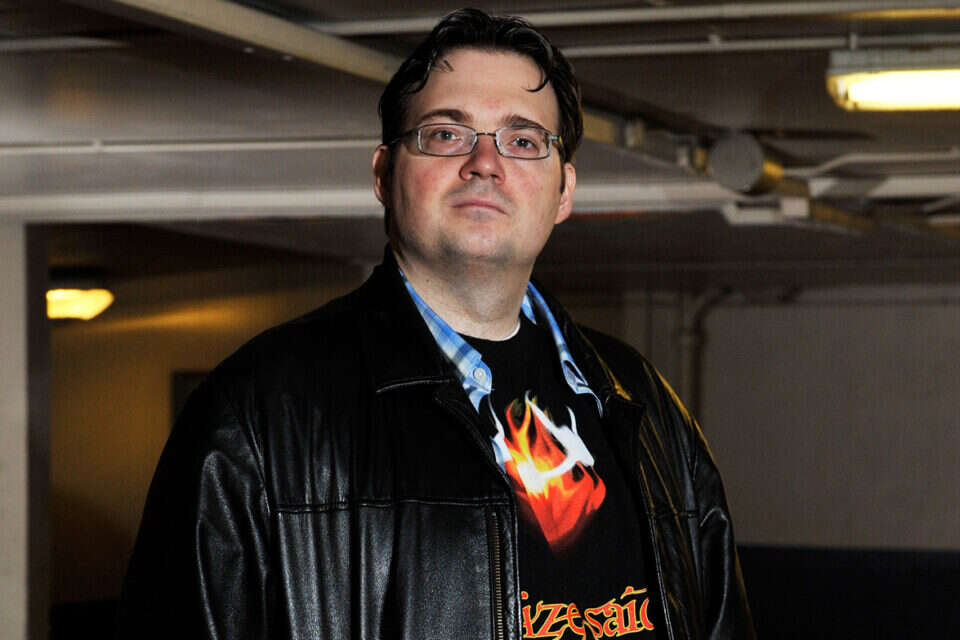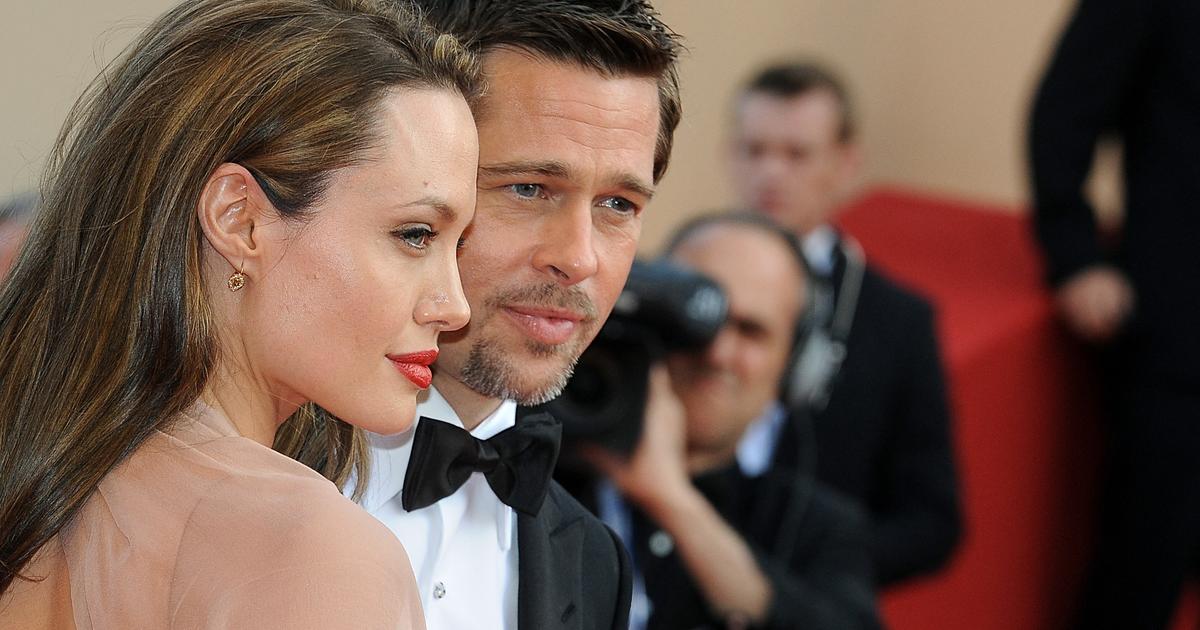In a post he published on his blog in December 2022, Brandon Sanderson - one of the world's most successful fantasy authors - dropped a bombshell: four new books he wrote, all of which will be published during the year 2023, will not be available for purchase on Audible, the world's largest audiobook platform owned by Amazon.
To understand why this is such a dramatic message, you need to take a few steps back.
Sanderson - who is known as an unusually prolific writer - is in regular contact with his fans and readers, and regularly updates on the dates when his next books are expected to be published.
But in March 2022, the fantasy writer surprised his readers and announced that he had written five "secret" books, which were not included in the official schedules.
The publishing house Dragonsteel, which is owned by Sanderson, started a crowdfunding campaign on the Kickstarter platform in order to finance the publication of four of these books (the last one is still in the works), with an initial goal of one million dollars;
To everyone's surprise, the campaign raised over 41 million dollars - an unprecedented amount on the platform, and more than twice the previous record.
The new books are expected to be sent to readers during the coming year - first to the supporters of the funding campaign, and then they will become available to all readers.
Intermediate: only 40% of the price of an audio book goes to the creator
This extraordinary success led at the time to many discussions about the future of the publishing market.
The Internet seems to be eliminating many of the traditional barriers and intermediaries between an author and his readers, including publishers, marketers, distributors and bookstores: independent authors have long used crowdfunding platforms to sell their books and recoup their initial investment, and in the world of digital books and audiobooks, ordering directly From the super is easier than ever;
And in this way, authors can reach readers directly and keep a much larger share of the revenue.
Even if most of them will not become millionaires like Sanderson, at least this is an opportunity to make a decent living from writing.
At the same time, as Noa Manheim pointed out in a column in "Calcalist" from March, it is also clear that what Sanderson did is not an option that is relevant to every writer: he is an extremely popular author, who has cultivated a close relationship with his audience since the publication of his first book in 2005;
The fantasy genre, in which he works, is also one that emphasizes the direct relationship between a writer and his audience through conferences, festivals, panels and autograph events.
Even within the fantasy genre, for every Sanderson there are dozens or even hundreds of independent writers that no one has heard of, and whose campaigns to obtain funding have failed;
Furthermore, Sanderson himself published several of his books in the established TOR publishing house, before gaining enough of an audience that allowed him to go independent.
On the other hand, Sanderson's current fight against Audible is one that has the potential to significantly help all independent writers wherever they are.
While in Israel the audiobook format is still in its infancy, globally it is a market that generates over 4 billion dollars a year (as of 2021);
According to a forecast published by the market research company Grand View Research, by 2030 the value of the market is expected to double almost ninefold, to about 35 billion dollars.
At the same time, it is a market that is almost exclusively controlled by one company: Amazon, through the Audible audiobook application that is owned by it.
Its dominance in the market allows Audible to set particularly tough rates for creators: today, only 40% of the price of an audiobook goes to the creator - compared to 70% in the digital book market.
For independent writers who are not willing to grant Audible an exclusive contract, the total royalties drop to a rate of only 25%.
Anderson announces on his website that the audio versions of his books will not appear in Audible,
This data was cited by Sanderson in his post, where he announced that the audio versions of the four new books will not be sold on Audible.
"Audible has reached a place where it is very bad for writers," Sanderson wrote.
"It's a good company that does bad things."
Instead of Audible, Sanderson signed a contract to sell his new books with two other companies: the Spotify-based listening platform and a company called Speechify.
While the details of the contract with Spotify remain confidential, the contract with Spotify included a promise by the company to grant a rate of 70% of profits to any creator who uploads their books to the platform;
According to Sanderson, he himself gave up the offer to receive 100% of the profits, provided the company promised to give a fair rate to all other writers.
Sanderson did take pains to emphasize that he "doesn't want to go to war" against Audible, and noted his appreciation for his contacts in the company.
"I like Audible," Sanderson wrote, "I'm worried they'll stagnate, stifle their creators, and end up killing themselves as a result. Real competition is good for everyone, including the companies themselves."
At the same time, it is hard to assume that Audible - and especially Amazon, its parent company - will accept things in this spirit.
Because the audiobook market is only part of the story: Amazon, which began its journey by quite aggressively taking over the American book retail market, was one of the first to recognize the transition to digital reading and use it to its advantage.
Through the Kindle device, Amazon controls a significant share of the digital book market.
Combined with its dominance in the audiobook market, it is able to offer good terms to authors and publishers who use its platforms exclusively – and punish those who don't.
This fact, for its part, increases its selection compared to competitors and leads more readers to use its services.
To this should be added additional business practices of Amazon, such as buying potential competitors or spot price reductions designed to take them out of the market.
"Audible has gotten to the point where it's very bad for writers," Sanderson wrote.
"It's a good company that does bad things."
Instead of Audible, Sanderson signed a contract to sell his new books with two other companies: the Spotify-based listening platform and a company called Speechify.
While the details of the contract with Spotify remain confidential, the contract with Spotify included a promise by the company to grant a rate of 70% of profits to any creator who uploads their books to the platform;
According to Sanderson, he himself gave up the offer to receive 100% of the profits, on the condition that the company promises to grant a fair rate to all other writers.
There is no doubt that Amazon has contributed significantly to the creation of the digital book and audiobook market, and it deserves credit for that.
But at the same time, its conduct today is harmful to creators - and also to consumers, who pay a high subscription price compared to other platforms that have difficulty dealing with the selection that Audible offers.
Is Sanderson's move expected to change the situation?
If he stays alone in the campaign, probably not;
As popular as it is, the revenue from the sale of four books is a drop in the ocean compared to Audible's market share (most of Sanderson's own books are also still available for purchase on the platform).
75% of the sales of Sanderson's latest book, The Lost Metal, came through Audible, and it is certainly possible that he will lose more from the current move than Audible itself;
And while the terms he's achieved for other writers on Speakify are very nice, they will be meaningless without a critical mass of readers who will also switch to purchasing books through the new platform.
But Sanderson's move may bear fruit if more writers, as well as publishers, join him.
In the way the market is currently structured, any author who decides on his own to leave Audible will be hurt by this, and will not significantly affect the platform's profits;
But if a sufficient number of women and men writers succeed in collaborating and getting their books out of Audible, it can be assumed that the readers will follow suit.
Moreover, in that case there would not even be a need to actually leave - the threat of a massive departure would probably be enough to make Audible improve the terms it is offering.
So is there a heroic crusade of one writer here, or the beginning of a broad movement that might change the book market for the better?
time will tell.
And perhaps it is appropriate to sign off with a quote from Sanderson, whose work is full of heroes who stand alone against all odds: "Someone has to start. If no one starts, others will not be able to follow."
Thanks to Yael Marcus and Uri Gat for helping to prepare the article
were we wrong
We will fix it!
If you found an error in the article, we would appreciate it if you shared it with us














